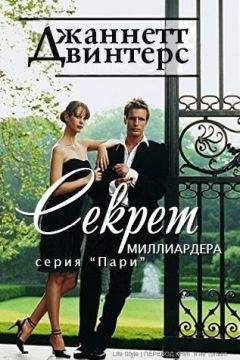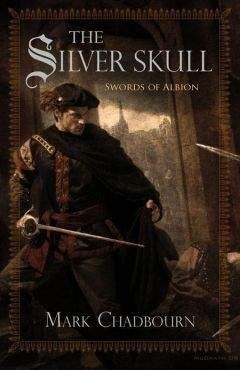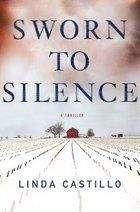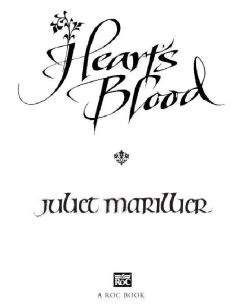Cybele's Secret - Juliet Marillier - Cybeles Secret
Скачивание начинается... Если скачивание не началось автоматически, пожалуйста нажмите на эту ссылку.
Жалоба
Напишите нам, и мы в срочном порядке примем меры.
Описание книги "Juliet Marillier - Cybeles Secret"
Описание и краткое содержание "Juliet Marillier - Cybeles Secret" читать бесплатно онлайн.
“He must be doing well,” I commented, recalling the size of the vessel that had almost rammed us.
“Indeed. A man doesn’t maintain a ship like that without resources and good planning. Of course, there are actual pirate operations hereabouts, but they’re mostly small, spur-of-the-moment ventures.”
I glanced at him. “If you’re trying to reassure me, Father,” I said, clutching the table as the Stea de Mare rolled again, “you’re not succeeding. What would have happened if they’d boarded us?” At the time, it had not occurred to me that the poles and hooks with which the crew of the Esperança had reached out to fend us off might just as well have been for the purpose of grappling us fast to her side, the better to leap aboard and—and what? Set about slaughtering crew and passengers alike? Sink the ship with all of us still on it? Or go through our cargo with the appreciation of merchants, help themselves to the best bits, say thank you, and sail away into the sunset? “And don’t tell me not to worry,” I added severely.
Father sighed. “There’s always a possibility of violence,” he said. “The fact that you are a girl puts you at particular risk. It makes me question why I agreed to bring you.”
“Because I’m useful, Father. And because I’ve been asking for years and years. With Gabriel not here, you’ll need me in Istanbul. Father, do you think Duarte Aguiar is after the same thing we are?”
“There’s little doubt that at some point in our negotiations we will find ourselves face to face with this pirate. We’ll need to be watchful. It would be exceptionally ill luck for us to be waylaid with the artifact in our possession—that’s supposing we do succeed in acquiring it. I expect Aguiar can be bought off, if necessary, with a payment in gold or jewels, or maybe a fine Damascene blade or two. Such a man cares principally for profit.”
In official documents, the great city was still called by its old name, Constantinople. Poets described it as a city of porphyry and marble, a jewel among jewels, its mosques and palaces rising above the water as if reaching toward the heavens. It was a place rich in history, a seat of imperial power, the conjunction of great trade ways, and a melting pot of cultures.
To a girl who had never traveled beyond the borders of Transylvania, the sea path toward that pale forest of minarets and towers, with the sun breaking through heavy clouds above us and the water surging past the Stea de Mare’s sides, was nothing short of magical. There had once been a great deal of magic in my life, but not recently. I had given up the hope of ever returning to the Other Kingdom, the enchanted realm I and my sisters had been privileged to visit at each full moon all through the years of our growing up. The way in had been closed to us six years ago, when we lost Tati. Today, sailing along the Bosphorus as my father pointed out the fortress of Rumeli Hisari, the landing from which the Spice Market might be accessed, and the high walls and green gardens of a grand private residence, I felt brimful with excitement, as if I were on the verge of a great discovery. Maybe the magic was back. At the very least, an adventure lay ahead.
We had come here to buy Cybele’s Gift, the fabled treasure of a lost faith. Somewhere amongst those steep ways clustered with shops and houses, mosques and basilicas, it was waiting for us. If we succeeded in our bid, my work as Father’s assistant would earn me a small share of the profit. I had plans for my earnings. They would enable me to take the first steps toward establishing my book business.
Neither Father nor I knew what the artifact looked like, although I had done some rapid research into the subject before we left home. I had found no physical description of the piece in the writings of scholars, but word of mouth suggested it was extremely old and of great beauty. I envisaged a marble tablet incised with rows of neat writing. It was said to contain a message of wisdom from an ancient goddess, her last words before she withdrew from the mortal world. Every merchant worth his salt had heard of this artifact, and when they spoke of it, they did so in hushed voices. Sometimes there is an item everyone wants, an object with some special quality that places it almost beyond valuation. Cybele’s Gift was one of those pieces.
My reading had told me Cybele was an Anatolian earth goddess associated with caves and mountaintops and bees. She was a wild kind of deity, her rituals involving all-night drumming and ecstatic dancing. I had not passed on to Father the most shocking detail I had uncovered, which was that her male followers mutilated themselves to become more like women, then dressed in female clothing. The cult of Cybele had long since died out, but the legend of Cybele’s Gift survived. If the artifact fell into deserving hands, the owner and his descendants would be blessed with riches and good fortune all the days of their lives. As is the manner of such promises, the thing worked both ways. In the wrong hands, the artifact would bring death and chaos. This had not been put to the test in living memory, for nobody had known the whereabouts of Cybele’s Gift for many years. Until now.
If I had been a collector, I would have steered well clear of such an acquisition, for my experience with the folk of the Other Kingdom had taught me the danger of such charms. However, when Father received word that an Armenian dealer would be offering Cybele’s Gift for sale when a certain caravan came into Istanbul, he quickly secured a potential buyer, a scholarly collector who helped finance our journey. And so we had come to Istanbul, the city glowing in the sunset above its scarf of water, to purchase this prize of prizes and bear it safely home.
The Stea de Mare made its way across the wide channel of the Bosphorus and into the narrower waterway, the Golden Horn, that opened from it, dividing the city. A rich aroma wafted in the air, made up of spices and sandalwood, hides and salt, and a hundred other cargoes—the smell of a great trading center.
Officials in small boats came out to halt us while our captain gave an inventory of the goods on board and the passengers he was ferrying. An impressive personage in a snowy turban and a robe of purple silk was asking all the questions. When the formalities were complete, he gave Father a little bow and the hint of a smile, and they exchanged courteous greetings in Turkish. Then the chain-link barrier across the Golden Horn was lowered for us, and we sailed into the docks. We had arrived.
I had expected carts by the waterfront to carry our cargo to Salem bin Afazi’s warehouse, but the bales and sacks were unloaded onto the dock, then borne away on the backs of workers whose every move was watched by a hawkeyed overseer with a coiled whip at his belt. I had known there would be slaves here, but the sight gave me a cold, uncomfortable feeling in my stomach.
Father was in intense conversation with a man who had come on board. The newcomer was wearing an expertly tailored short robe over wool hose and felt boots, and a velvet cap on his head. He had the well-kempt, well-fed look of a successful trader. They were speaking in Greek. I let the talk drift past me as I scanned the craft moored around us, my gaze moving from tiny, weather-beaten fishing boats to grand three-masted carracks, from merchant vessels swarming with activity to swift, elegant caïques that served as ferryboats. I looked back along the nearby docks and my gaze stilled. The Esperança was moored at some distance from us, her sails furled now, the only sign of life a solitary crewman making a slow patrol of the deck. I could not see if he was armed. Perhaps Duarte da Costa Aguiar was already out there in the city somewhere, making a generous offer for Cybele’s Gift.
I narrowed my eyes. What was that patch of black, a tattered length of cloth next to the Esperança’s mast? It was flapping as if stirred by a capricious breeze, yet nothing around it moved. Wasn’t that…No, it couldn’t be. And yet that was what I saw: Halfway up the mainmast was the figure of a woman clad in a black robe whose folds billowed out on that uncanny wind. Her head was turned in my direction, but I could not see her face, for she wore the style of veil that conceals all but the eyes. She seemed to be beckoning. And I heard a command, not aloud but clear in my mind: It’s time, Paula. It’s time to begin your quest. Goose bumps broke out all over my body. Without a shred of doubt, it was a voice from the Other Kingdom. A familiar voice. I could have sworn the speaker was my sister Tati.
“Paula!”
I dragged my eyes away from the unearthly figure on the pirate vessel; then, seeing my father’s expression, I went quickly to his side. “What is it, Father? Are you unwell?” It had been a long time since that terrible winter when he had been too ill to stay at home in the mountains. Father had been much better of late. Still, I worried. Right now he looked old. “Father, you should sit down,” I said, motioning to a bench. I glanced back toward the Esperança; the apparition had vanished.
“I’m fine, Paula. This is Master Giacomo of Genoa, another colleague of Salem bin Afazi.” Out of courtesy, he continued to use Greek, which he had told me was a shared tongue of traders in these parts. There would be few who spoke our own language here. “Giacomo, let me present my daughter Paula, who is here as my assistant.”
The Genoese sketched a bow, his shrewd eyes evaluating what he could see of me behind my modest scarf and demure gown.
“There’s been a change of plan,” Father said. He was twisting his hat between his hands; it would need steaming to regain its shape. He had not sat down. “Master Giacomo has procured lodgings for us in the Galata district. It’s in a han, a trading center, where there will be storage for our goods as well. He says it will be quite proper for you to stay there; many of the Genoese merchants live nearby with their families, and Giacomo and his wife will be in residence on the upper floor. The establishment is well guarded. Our cargo will be taken there, not to Salem’s warehouse.”
I observed the lines on my father’s face, the grayish tinge around eyes and nose. I waited for him to speak again.
“Salem’s dead, Paula,” Father said flatly. “It happened not long ago. In keeping with Muslim practice, he was buried within a day.”
“Oh, no!” It was a shock even to me. Father and Salem had had a close trading partnership for years, exchanging sensitive information, helping each other to achieve audacious deals, supporting each other in negotiations. They had built a delicate bridge between cultures. They had been friends. “I’m so sorry, Father. What happened?”
The Genoese trader cleared his throat, glancing at Father, and Father gave a weary nod.
“He was murdered,” said Master Giacomo. “Done to death in an alleyway not far from his home, the perpetrators unknown. We must all be watchful.”
We walked from the docks up a steep, winding street. Despite the bad news, I could not help feeling excited by the color and life and sheer difference of the place. I realized that no matter how much I had read about Istanbul and its history, nothing could have prepared me for the real thing. There were so many people here, more people than I had ever seen at one time before, even in the very center of Braşov on market day. My head went from side to side as I tried to take in everything at once—little shops by the roadside piled high with strange-looking fruit, a man in a tall hat balancing a stack of round, flat loaves, another with a donkey bearing a pair of bulging skin bags.
“Water,” Father said, seeing me staring. “He’s making a delivery to one of the houses; most folk have a cistern near their gate. Fresh supplies come in daily.”
The noise was overpowering—folk calling out to advertise their wares, donkeys braying, cart wheels rumbling on the stones of the street—as if the place could barely contain its bustling human traffic. I had heard that more than three hundred thousand people lived in Istanbul, most of them Turkish. Here in the trading district of Galata, the faces I saw around me were more of a mixture. Turbans mingled with the looser headdresses of southern regions, merchants’ velvet hats went side by side with the skullcaps of Jews. The crowd was almost exclusively male.
“The Galata Tower,” Father said, pointing up the hill. “Built by the Genoese before the Ottoman conquest. This district was once an independent city-state. Those times are long past, but a good many of the fortifications remain. Business continued to flourish under the sultanate. Very sensibly, the Ottomans saw the advantages of a tolerant approach to successful foreign traders in the city and made an arrangement with the Genoese. Our han is along this way.”
The trading center where we were to stay was an imposing building shaped in an open rectangle of two stories, set around a courtyard with trees and fountains. The ground floor was bordered by a broad cloister with arches to the court. From here, doors opened to a series of chambers in which cargoes could be safely stored. Under the covered area’s shade, traders had goods set out for inspection: carpets and fine pottery and silks. Small clusters of buyers were conducting intense conversations. On the upper level, reached by steep stone steps, were living quarters and private rooms for business meetings, along with privies and washing facilities. By the time we reached our allocated apartment, my feet were hurting and my head was reeling as I tried to absorb everything.
It was a relief to see another woman; there had been so few out in the street that I had begun to feel uncomfortably conspicuous. Giacomo’s wife, Maria, came bustling along the upstairs gallery, introduced herself, and promised to bring us coffee. She showed us the amenities of our quarters, which were not luxurious. Most of the rooms, she explained, were designed for merchants traveling alone and consisted of a small bedchamber and a slightly larger meeting room. Ours had the added feature of a closet-sized extra space with its own tiny window set with red and blue glass. This little chamber was where I would be sleeping. I eyed it dubiously but thanked her in my best Greek. I would be getting a lot of practice in this language, which we would be using for most of our business negotiations in Istanbul.
“Well, Paula,” Father said when Giacomo and Maria were gone, “here we are. A loss, a challenge, but I suppose we can do it. I’ve asked Giacomo to put the word about that we’re looking for a guard. We’ll interview the applicants first thing tomorrow.”
“First thing” apparently meant before breakfast. I had been awake since dawn anyway, roused abruptly by the ringing voice of a muezzin chanting the morning call to prayer from a nearby minaret. A motley collection of men was waiting in the courtyard below our quarters. Father called them up to the gallery one by one, and I observed from just inside the doorway of our apartment, my veil over my head. Some of them spoke only Turkish. Some could not provide names of past employers. Some balked when it was explained that they would be protecting me rather than my father. One or two looked as if they wouldn’t have the strength to fight off a stray terrier.
Подписывайтесь на наши страницы в социальных сетях.
Будьте в курсе последних книжных новинок, комментируйте, обсуждайте. Мы ждём Вас!
Похожие книги на "Juliet Marillier - Cybeles Secret"
Книги похожие на "Juliet Marillier - Cybeles Secret" читать онлайн или скачать бесплатно полные версии.
Мы рекомендуем Вам зарегистрироваться либо войти на сайт под своим именем.
Отзывы о "Cybele's Secret - Juliet Marillier - Cybeles Secret"
Отзывы читателей о книге "Juliet Marillier - Cybeles Secret", комментарии и мнения людей о произведении.










